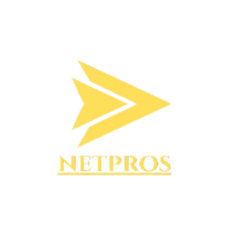The landscape of non-AAMS betting sites includes platforms that attract Italian players through specific advantages despite inherent risks Identifying relatively better options requires evaluating licensing jurisdictional reputation payment reliability and operational history While no unlicensed site matches Italian regulatory standards certain platforms demonstrate more consistent practices than others
Key Characteristics of More Reliable Non-AAMS Platforms
The most frequently mentioned non-AAMS sites share operational traits that suggest relatively safer engagement These include holding licenses from established jurisdictions like Malta Gaming Authority or Curacao eGaming maintaining at least five years of continuous operation without major scandals offering diverse payment methods including traditional options alongside cryptocurrencies and providing responsive multilingual customer support These platforms typically feature extensive sportsbooks with competitive odds and transparent bonus terms though wagering requirements often exceed industry averages
Notable Platforms and Their Operational Profiles
22Bet emerges as a commonly referenced option due to its Curacao license comprehensive sports coverage spanning over 40 sports and acceptance of multiple cryptocurrencies including Bitcoin Ethereum and Litecoin The platform supports live streaming for major events and processes withdrawals within 24 hours for e-wallets though bank transfers may take 3-5 days Another frequently cited site 1xBet operates under a Curacao license with a decade-long presence offering over 1000 daily betting markets and 24/7 live chat support Its mobile app receives positive reviews for functionality though withdrawal verification can be stringent BetWinner also appears in discussions for its Curacao licensing extensive casino games alongside sports betting and support for 20+ payment methods including regional options like Piastrix
Critical Risk Factors Persisting Across Non-AAMS Sites
Even the most reputable non-AAMS platforms carry substantial risks inherent to unlicensed gambling Payment processing remains vulnerable with potential delays during high-volume withdrawal periods Game fairness lacks independent verification meaning actual return percentages may differ from advertised figures Player funds receive no legal protection against operator insolvency or sudden account closures Responsible gambling tools remain minimal or nonexistent compared to licensed Italian sites that enforce strict self-exclusion protocols The absence of Italian regulatory oversight means no formal dispute resolution exists for issues like bonus denials or frozen accounts
Practical Challenges Users Regularly Encounter
Players engaging with these sites face consistent operational hurdles Identity verification processes often become intrusive when requesting withdrawals sometimes demanding excessive documentation beyond standard KYC requirements Bonus terms frequently include complex wagering conditions exceeding 40x the bonus amount making actual withdrawals difficult Geolocation restrictions may require VPN usage creating additional technical complexities and potential security vulnerabilities Transaction fees particularly for cryptocurrency payments can reduce effective returns by 2-5% Customer service quality varies widely with response times ranging from minutes to days depending on platform workload
Why Licensed Italian Bookmakers Remain Superior
Italian-licensed operators provide irreplaceable safeguards including mandatory player fund segregation ensuring money remains protected even if operators face financial difficulties Guaranteed dispute resolution through ADM mediation offers legal recourse unavailable elsewhere Comprehensive responsible gambling features like deposit limits loss limits and self-exclusion tools help prevent problematic behavior Independent game certification through auditors like eCOGRA ensures fair play across all offerings While bonuses may be smaller than non-AAMS sites they come with clear reasonable terms without hidden traps
Strategic Approaches for Risk Mitigation
For players still considering non-AAMS platforms implementing strict safeguards becomes essential Setting firm deposit limits separate from essential finances prevents catastrophic losses Using dedicated payment methods not linked to primary bank accounts adds financial protection Maintaining detailed records of all transactions and communications creates evidence trails for disputes Avoiding chasing losses through predetermined stop-loss limits helps prevent emotional decisions Regularly reviewing platform reputation through independent forums like AskGamblers helps identify emerging migliori siti non AAMS problems before they affect individual players
Recent Regulatory Developments Impacting Non-AAMS Sites
Italian authorities have intensified enforcement against unlicensed operators through advanced payment blocking technologies and cross-border cooperation with licensing jurisdictions In 2023 new agreements with Maltese regulators improved information sharing about operators targeting Italian players without proper authorization DNS blocking has expanded to include over 500 non-AAMS domains while financial institutions now automatically flag transactions to known unlicensed gambling sites These developments gradually reduce operational space for non-AAMS platforms making licensed options increasingly attractive
Final Perspective on Non-AAMS Betting Engagement
While some non-AAMS sites demonstrate relatively better operational standards they remain fundamentally inferior to licensed Italian platforms in terms of player protection and security The marginal benefits like larger bonuses or niche markets come with substantial risks including potential financial loss legal complications and inadequate safeguards for vulnerable players Responsible gambling prioritizes security and legality over short-term gains making Italian-licensed operators the only truly sustainable choice for long-term betting engagement Players considering non-AAMS options must approach with extreme caution understanding that even the best examples operate outside meaningful consumer protection frameworks The evolving regulatory landscape further diminishes the viability of unlicensed platforms as enforcement mechanisms become increasingly sophisticated.
